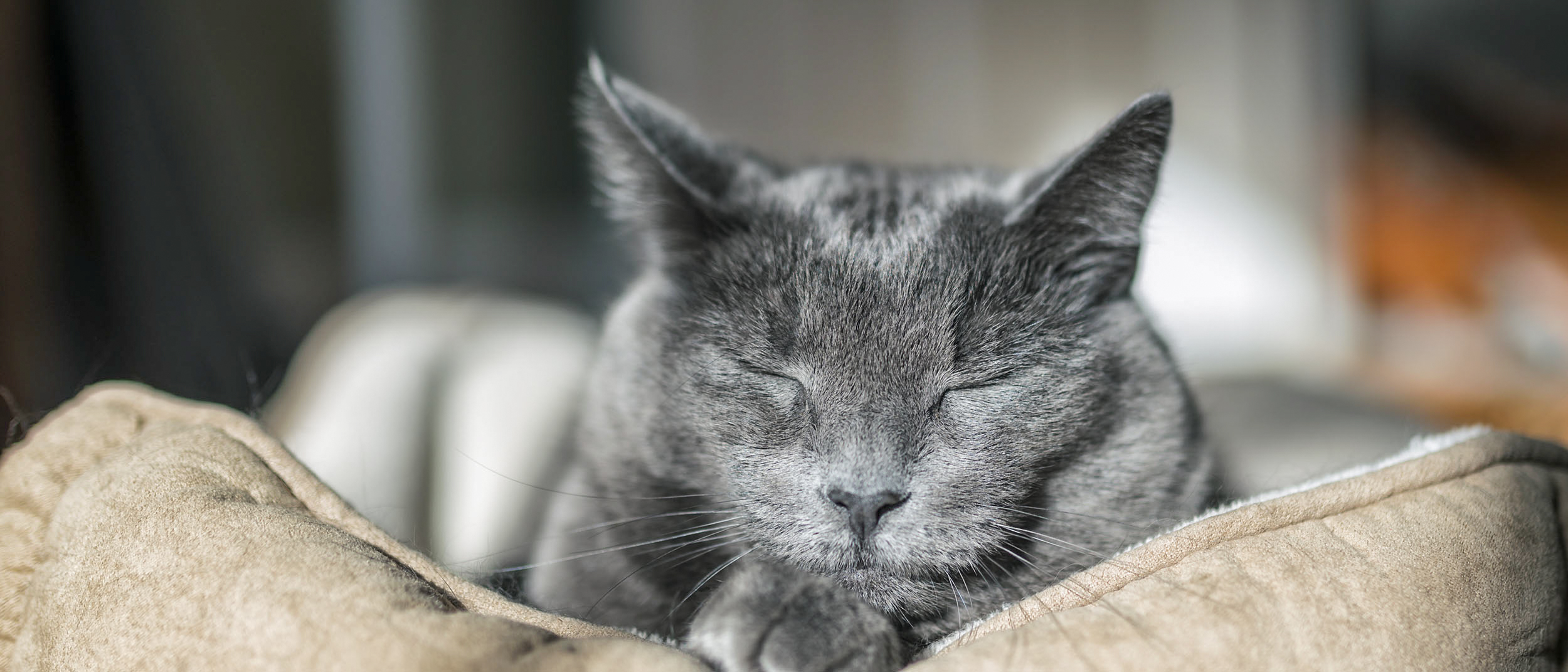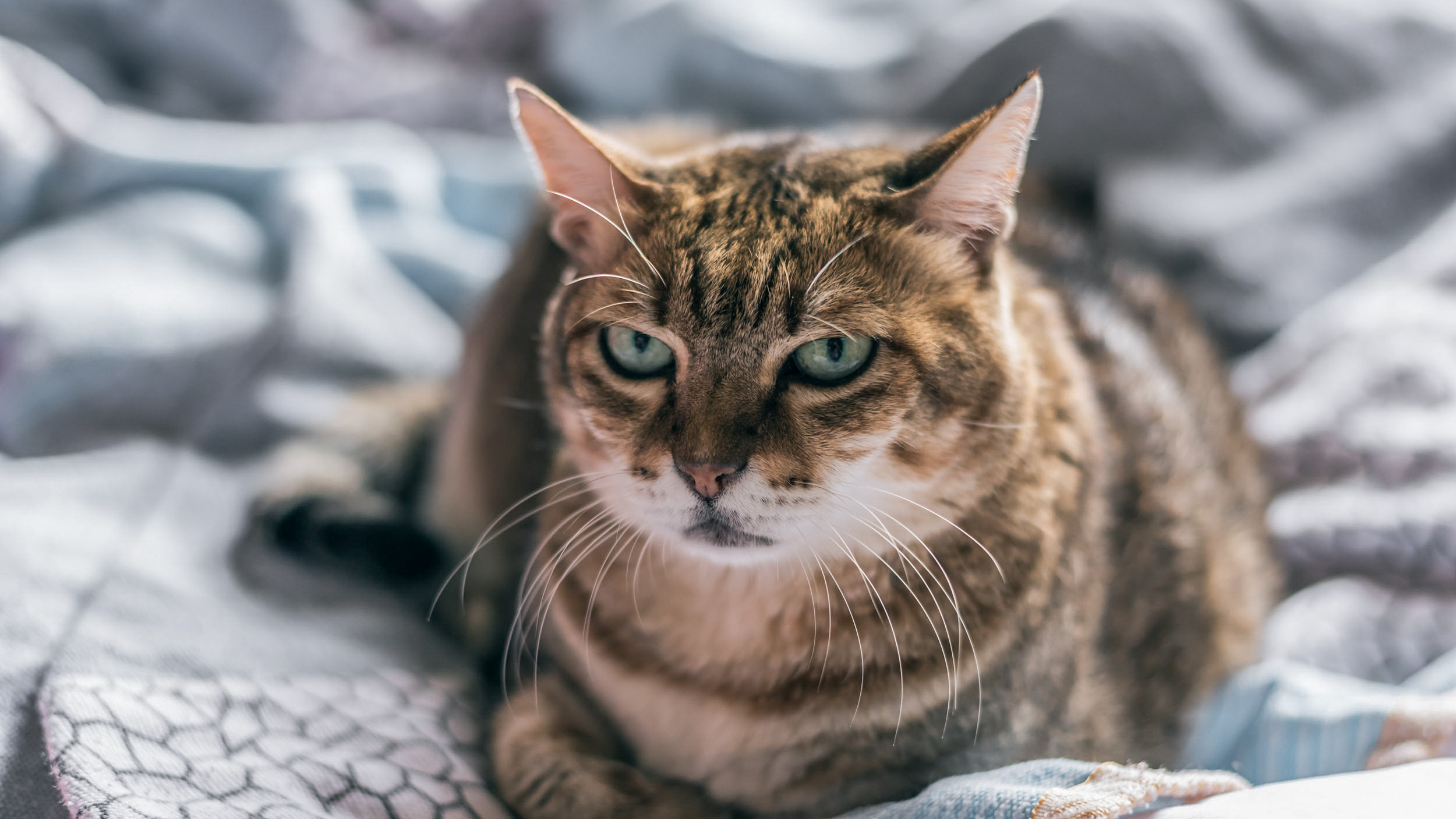How should I care for my aging cat?
Article

Each stage of your cat's life brings with it unique joys and challenges, particularly as they reach their senior years. Their behavioral and physical changes from the age of 10 onward means you may have to change their environment, exercise and diet to support them in the later part of their life.
Cats can live up to 20 years old—the equivalent of a 96-year-old human. Usually from around 11 years old you'll start to notice external signs of aging in your cat. At this time, they can benefit from diet change with specific key nutrients.
Your aging cat's environment
As your cat ages, their joints can start to wear down and they may begin to suffer from arthritis. They may become less mobile, unsteady on their feet, or struggle to get up and down from their favorite spots.
You can care for your aging cat by providing ramps or stairs to high places they like to perch on, and making their bedding particularly comfortable so they are able to rest easily. A litter box with shallower sides can be helpful for older cats to reduce the strain of getting in and out.
Making their food, litter box and fresh water easily accessible—for example, by having these on each floor of your home—can also decrease any strains and stresses on their system. You should also avoid changing any aspects of their routine as this can aggravate any cognitive difficulties they might be having.
Exercising and grooming your aging cat
Painful or sensitive joints can cause your cat to move less and be less willing to come when you call them. If they are in pain, they may also react badly to being picked up, and older cats often may have cognitive impairments that can cause them to behave unsociably.
However, exercising your aging cat is important to maintain a healthy weight. Encouraging them to play gently during the day with their favorite toy can be an easy way to exercise them, and can help them establish a better sleep cycle by tiring them out in the day.
Decreased flexibility can mean older cats are less able to groom themselves properly, so it's important you regularly brush them to remove dead hair and keep their skin healthy.

Your aging cat and their diet
Your cat's sense of taste and smell decreases with age, which can result in reduced appetite. If they have dental problems that make it uncomfortable to eat, this can eventually lead to weight loss. To prevent this, highly palatable and soft-textured foods are a good choice for aging cats as they are easier and more enjoyable for them to eat.
Senior cats can benefit from specific nutrients to help address signs of aging:
- Glucosamine, chondroitin sulfate, EPA/DHA and New Zealand Green Mussel can help support mobility in aging cats and promote healthy joint function
- Antioxidants to support antioxidant capacity
- Adapted levels of phosphorus to support kidney health and function
- Highly digestible protein to support digestion in mature cats. Beet pulp can provide a beneficial prebiotic effect, and EPA/DHA to support digestive health
Visiting the vet with your aging cat
After your cat is 10 years old, it's best to visit your vet every six months; this way, any potential illnesses can be spotted quickly. If you notice your cat has increased thirst or urination, problems related to their digestion, significant mobility issues, behavioral changes, or any lumps on their body, make sure to visit your vet right away as these can be indicators of underlying diseases.
By following these simple tips, you'll be able to support your cat as it approaches its later years. If you're in any doubt, consult your vet who will be happy to give you all the help you need.
Like & share this page